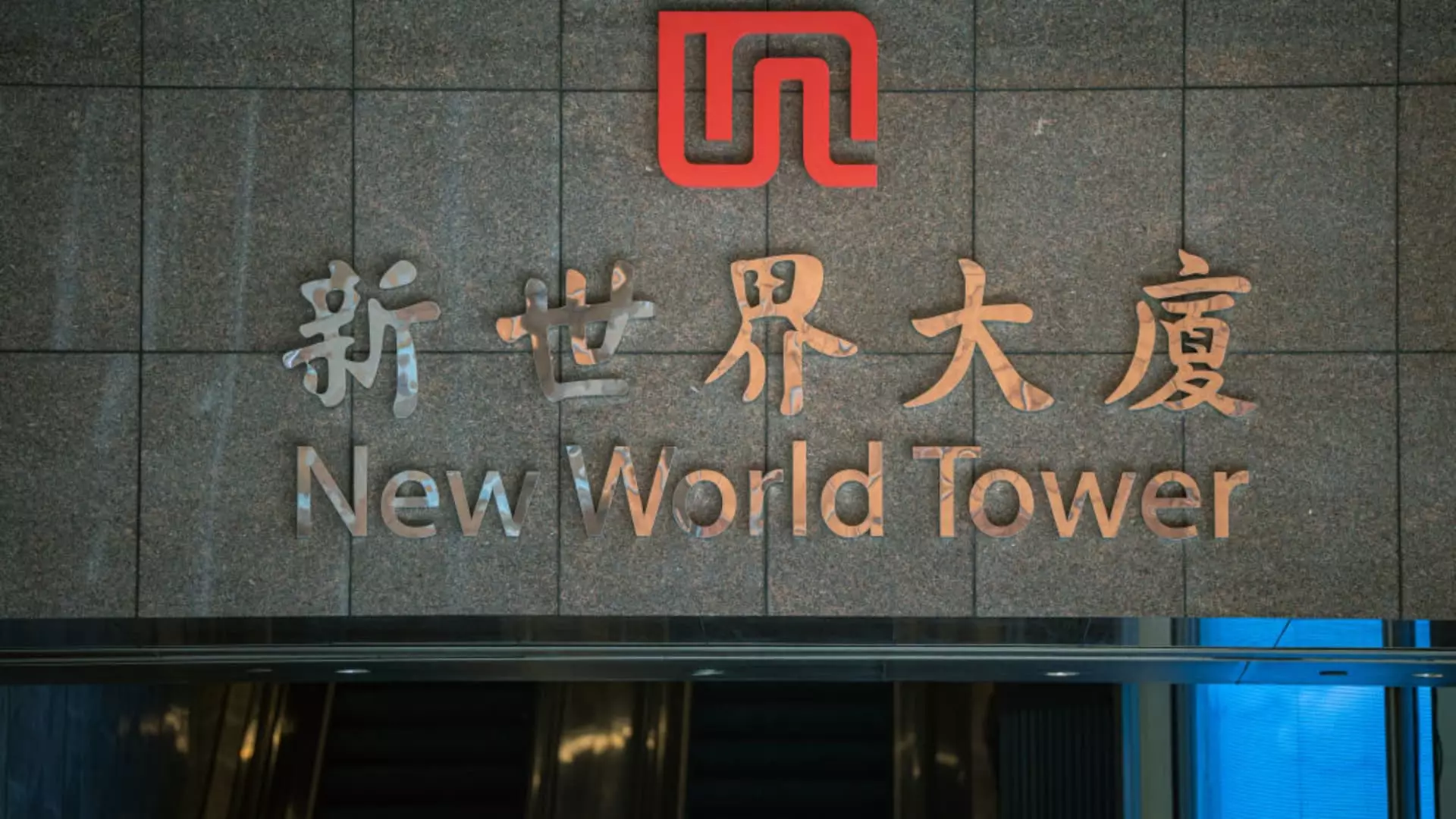The recent resignation of Adrian Cheng from New World Development has sparked a notable response in the financial markets, reflecting investor sentiment and the potential for change within the company. Following Cheng’s departure, shares of the Hong Kong-based development firm experienced a remarkable 23% increase upon the resumption of trading, illustrating a clear vote of confidence from stakeholders. This decision to resign was primarily motivated by Cheng’s desire to pursue “public services and other personal commitments,” which, while noble, brings about a significant shift in the company’s leadership structure.
The appointment of Eric Ma Siu-Cheung as the new Chief Executive Officer is particularly noteworthy. This transition marks a pivotal change, as an outsider assumes the helm of a family-run business—something that is quite uncommon in the region’s corporate landscape. Ma’s leadership could signal a progressive shift towards modernization and adaptability in an industry that has faced substantial challenges in recent years.
New World Development is no stranger to turmoil, as evident in their recent financial disclosures indicating expected losses ranging from HK $19 billion to HK $20 billion for the fiscal year ending in June. Such losses are primarily attributed to plummeting sales, investment setbacks, and substantial impairment charges, all exacerbated by the broader economic difficulties facing both Hong Kong and mainland China’s real estate markets. The company’s escalating debt levels add another layer of complexity, underscoring the necessity for strategic leadership to navigate the turbulent waters ahead.
The landscape for real estate firms in Hong Kong remains fraught with challenges, particularly as the market continues to struggle with diminishing demand and regulatory pressures. In this context, Ma’s ascendance to the CEO role presents an opportunity for revitalization, ideally bringing new insights and innovative strategies to remedy the organization’s financial woes.
The situation has spurred discussion around corporate governance within family-owned enterprises in Hong Kong, as highlighted by Alicia Garcia-Herrero, chief economist for Asia Pacific at Natixis. The historical tendency for familial succession and the reliance on inherited leadership may no longer suffice in the contemporary market, which increasingly demands effective management practices. The shift in leadership at New World Development exemplifies a growing recognition among tycoons in Hong Kong regarding the importance of strong governance, especially when navigating challenging economic environments.
Moreover, the broader rally in Hong Kong and Chinese equities, stimulated by recent economic policies and fiscal initiatives from China’s central bank, presents a promising backdrop for New World Development. With concerted efforts aimed at reviving the real estate sector, including enhanced monetary support, stakeholders are hopeful that the company’s new leadership can capitalize on this momentum.
The leadership transition at New World Development, coupled with the broader economic context, creates an intriguing scenario for the company and its stakeholders. Eric Ma’s new role could pave the way for innovative approaches to overcome persistent challenges, while the market’s positive reaction reflects optimistic expectations for recovery. As New World Development navigates this crucial period, the implications of its governance approach could have far-reaching effects on its performance and on the real estate sector as a whole. As they embark on this new chapter, all eyes will be on how effectively they can blend tradition with the need for change in a rapidly evolving market landscape.

